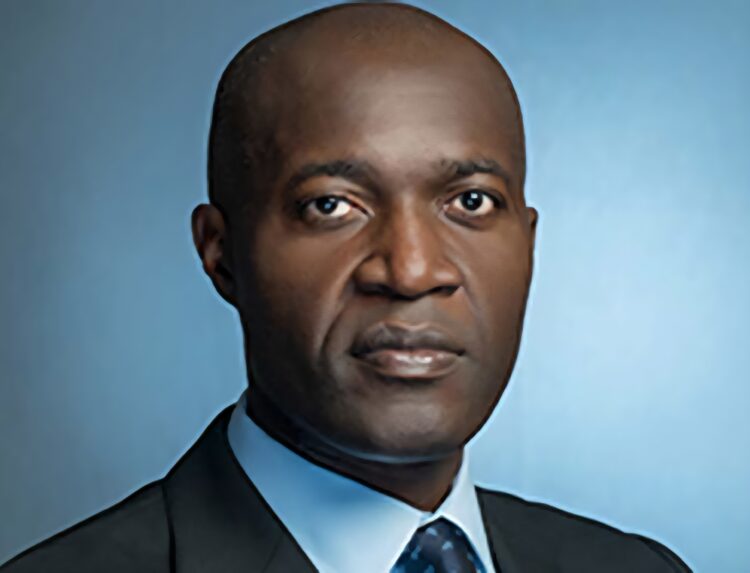● Acquisition stirs questions of prudence, perception, and financial leadership
● What glitters as luxury in London registers in Nigeria as loss: Lessons from Ogbonna’s foreclosed reputation
Every bank thrives on something more delicate than capital: trust. Trust is the invisible currency that secures deposits, steadies markets, and sustains reputations. It is the unspoken contract between depositors and the custodian of their wealth, a silent handshake that binds the banker to fiscal intelligence and restraint. But when Roosevelt Ogbonna, Managing Director (MD) of Access Bank, stepped into London’s Billionaires’ Row with a £15 million (about N30bn) purchase, he did not merely acquire stone, glass, and landscaped earth, he purchased a question mark that now hovers over his judgment.
The house, lavish with a spa and an entertainment suite, sprawling across Hampstead’s fabled terrain, was once priced at £17 million. By the mathematics of real estate, Ogbonna secured a bargain. By the mathematics of perception, however, he incurred a debt. For bankers, perception is both peripheral and central. It shapes how regulators scrutinise and how customers trust; it shapes how markets read and how history records. The mansion, rare transaction though it may be in a declining luxury market, has become a metaphor: a palace in London casting shadows back to Lagos.
By that lavish acquisition, argued pundits, Ogbonna committed a reckless and unforgivable infraction. Not a few industry giants, including Access Bank staff, have condemned Ogbonna’s action as inconsistent with the expected conduct of a Managing Director of a bank. He forgot, said a senior management staff of the bank, that in the public imagination, he is seen as a bearer of fiduciary vows. For a man whose signature approves loans and signals value, his conduct, especially outside boardrooms, should border on restraint. However, Ogbonna, doesn’t see things that way.
Sitting confidently at the helm of Access Bank, Nigeria’s largest bank by assets, Ogbonna is entrusted with the bank’s five-year expansion into 24 countries and also the symbolic weight of 63 million customers. For such a figure, he ought to have been more discrete.
To then see him stride into London’s beleaguered yet vibrant luxury market and acquire a mansion for £15 million emphasises a disconnect; a curious dissonance between his expected role and innate inclinations.
Why the mansion raises eyebrows
Access Bank depositors are predictably worried by the action of the bank’s MD. Sources within the bank revealed that certain highnetworth shareholders and customers have expressed serious displeasure and lack of confidence in the bank’s leadership, in the wake of Ogbonna’s lavish spending.
Depositors and shareholders, who are always sensitive to the optics of wealth in an economy still wrestling with inflation and unemployment, are asking if Access Bank incumbent leadership is too rich to care and understand restraint. For them, Ogbonna’s excess is a red flag.
Bankers, after all, are meant to embody the virtues of tact, prudence, and humility. They are meant to be custodians whose private choices do not rattle public confidence. A spa and an entertainment suite, bought at £15 million by the steward of a bank expanding across continents, conflicts with prudence and pronounces indulgence.
Ogbonna’s action underscores a timeless truth: that leadership is perception before it is performance. A bank MD may drive record profits, open new branches, or ink global partnerships, but a single decision perceived as extravagant can overshadow boardroom triumphs.
For the ordinary depositor in Lagos, Kano, or Ondo, who entrusts their life’s savings to Access Bank, the sight of their MD purchasing a London mansion can never be softened by explanations of “discounted real estate markets.” They do not read LonRes data on price reductions. Instead, they read symbols. And symbols matter more than statistics in the moral economy of finance.
This is the tactlessness of Ogbonna’s purchase; it ignores the psychology of trust, optics of humility, and the pedagogy of restraint.
The smudge on Access Bank’s future
Access Bank, under Ogbonna, is definitely not a small vessel, it is a continent-crossing ship. Its five-year plan aims to double assets abroad by 2027, spreading across 24 countries, including the UK, where it already operates. Its balance sheets signal ambition and its workforce affirms its depth of expansion. Yet, Ogbonna’s London mansion casts a dark pall on the bank’s promising horizons. It hints that the captain may not fully grasp how personal indulgence can ruin corporate ambition.
Global investors, especially those trained in the subtle semiotics of leadership, understand that personal actions often mirror institutional culture. If the MD prioritises appearances, will the bank’s DNA drift toward excess? If he places private luxury above public prudence, will regulators trust his judgment on corporate risks? A single mansion may not bankrupt a bank, but it can bankrupt confidence.
To regulators, the optics of Ogbonna’s purchase are instructive. Regulators, widely known as referees of compliance and systemic stability, watch for signals that suggest misalignment between a banker’s choices and the obligations of stewardship. A £15 million mansion in London may not violate banking law, but it violates the unwritten ethic of restraint. For regulators, such actions raise questions: if a banker exhibits personal recklessness in optics, can he be trusted with institutional prudence? If he shows insensitivity to perception, can he be trusted to manage reputational risk?
Customers, on their part, read gestures. They interpret symbols and attempt judgments that, though informal, shape the reputation of a bank. A depositor in Ibadan may not understand London’s housing slump, but he understands extravagance. He knows what it means to tighten his belt while his bank MD expands his mansion. Such feelings, multiplied across millions of customers, erode confidence more swiftly than bad loans.
Bankers are judged by much more than their quarterly profits; they are also judged by their daily choices. They are held to a higher standard because they hold the wealth of nations in their care.
Ogbonna’s London mansion, though legal, fails the test of tact, prudence, and perception. It undermines the very values that sustain banking leadership: humility, sensitivity, wisdom, and emotional intelligence.




